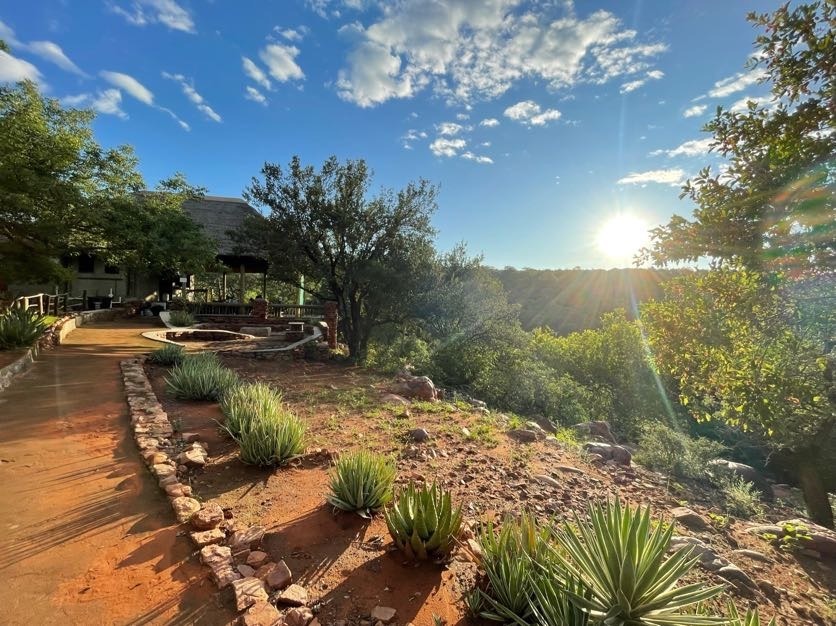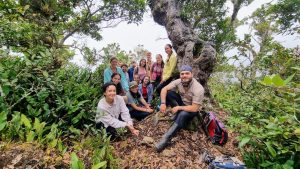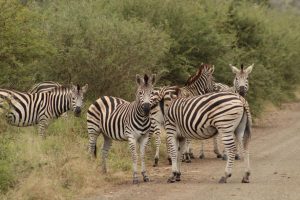Alana Herr
Washington University in St. Louis
African Ecology & Conservation in South Africa – Spring 2023
Hello from South Africa!
My name is Alana and I’m a junior at Washington University in St. Louis majoring in biology with a concentration in ecology and evolution. I’m interested generally in ecology and conservation, but I knew nothing about South Africa, savannas, grasslands, or anything before getting here. OTS just sounded like a great program, and so far, coming here has been one of the best decisions I’ve ever made.
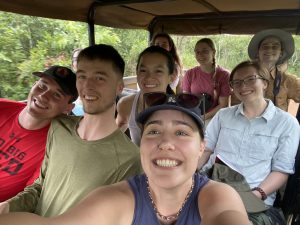
When learning about this program, I didn’t realize how many places we would get to see. Since we arrived 6 weeks ago, we have spent time moving around from Eswatini, to Kruger, and up north to Mapangubwe, all of which have been very different and given us the chance to learn so many new things. In Eswatini we stayed at a park with no dangerous predators so we could walk around whenever we wanted, which meant coming very close to some giraffe that really enjoyed galloping out of the bushes and scaring us. This site allowed us to learn about the management of private game reserves, which was very different from the Kruger and Mapungubwe National Parks, where we learned to be constantly on the lookout for lions. This week, we’re going to Cape Town and then we continue doing research at parks along the western cape. All of these have been some of the most beautiful places I’ve ever seen, and we also get to go out and do research in the field at all these sites. For one of our research projects, we got to walk miles through the savanna, past frolicking zebras, and impalas, to watering holes that no one else ever gets to visit so we could set up camera traps to record photos of animals. We got actual, usable data from this that
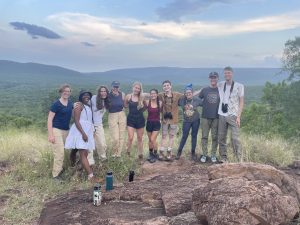
we not only used to practice writing a scientific report but will also be used for long-term monitoring of the park, so what we did will have a long-term contribution to helping Kruger.
Even in our downtime, we are constantly outside and being taken to beatific viewpoints. We’ve even had some of our lectures at the top of mountains after a hike. And this whole time that we are spending outside, we are talking to our academics and to the other students and learning so much about science and ecology through casual interactions. Our professors have buckets of
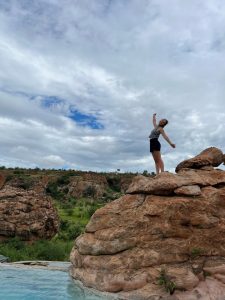
knowledge that we get to learn from, but I’ve learned just as much from my friends about their passions. I know about chimpanzees’ social behavior, the banana crisis, and can identify 5 birds, all just from conversations about science that we are constantly having. This past week, we just had the opportunity to go to the Savanna Science Networking Meeting where we got to network with people at the top of their field doing important research. I learned so much, met so many people, and really affirmed my excitement that this is what I want to do with my life. One of my friends even got a job offer at the conference.
We only have 6 weeks left in this program and I’m already sad that it’s halfway done. I’ve become so adjusted to the number of wild animals we see that I know I’m going to miss it when I’m back at university. Last week, we watched a family of elephants drink from our swimming pool as we ate breakfast, and I’ve become so accustomed to impalas constantly being around that I consider them the South African squirrel: cute and everywhere you look. I never thought that I would study abroad, let alone do so in Africa, but this has been such a great experience, not only because I’ve learned so much and gained skills that will help me in my future career, but I’ve also made so many amazing friends who I get to spend all day, every day with and who I plan on hanging on to after this program.
